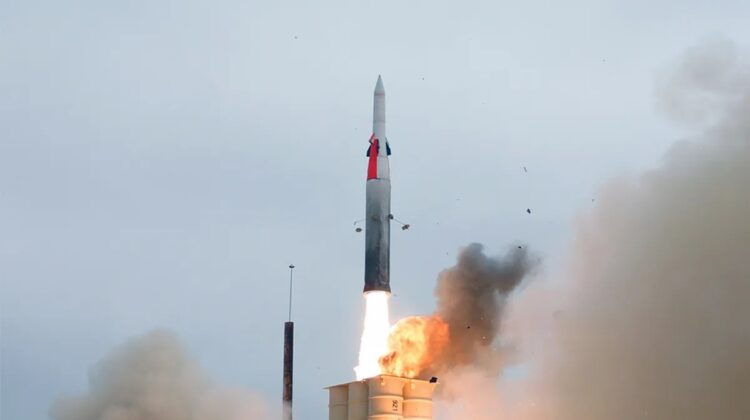
In a potential historic milestone, humanity may have just witnessed its first-ever military conflict in space, as Israel claims to have shot down an “aerial threat” outside Earth’s atmosphere. The incident reportedly occurred last week when the Israeli Defense Force (IDF) asserts that it intercepted a surface-to-surface missile, allegedly launched from Yemen, using its Arrow system.
According to the IDF, the missile, fired on October 30, traveled almost 1,600 kilometers (1,000 miles) before being successfully shot down by the missile-defense system. While details surrounding the event remain limited, reports suggest that the engagement took place above the recognized boundary of space, known as the Kármán Line, situated 100 kilometers (62 miles) above Earth’s surface. If confirmed, this would mark a significant moment as the potential first-ever military skirmish in space. The Houthi militia in Yemen claimed responsibility for the missile launch.

The Arrow 2 interceptor, developed by Israeli Aerospace Industries, is designed to intercept and destroy incoming tactical ballistic missiles. Notably, it is explicitly engineered to operate both within Earth’s atmosphere and in space. While the Arrow system has been operational for 25 years, this incident appears to be the first time its capabilities in space have been put to the test. However, the system has faced criticism for its substantial cost and has been utilized in operational settings only twice in its history.
An Israeli defense official, speaking to Haaretz, emphasized the broader implications of the successful interception beyond protecting specific regions. “Primarily, it proves to Iran, which was behind the launch and supplied the missile, that Israel has the ability to act against its missile program, and this has much broader implications for the regional conflict,” the official stated.

This potential milestone has opened discussions about the evolving dynamics of conflicts beyond Earth’s atmosphere, raising questions about the militarization of space and the implications for international relations. As the global community awaits further details and confirmation, the incident, if verified, would undoubtedly mark a significant chapter in the ongoing exploration of space’s strategic and geopolitical dimensions.

Leave a Reply